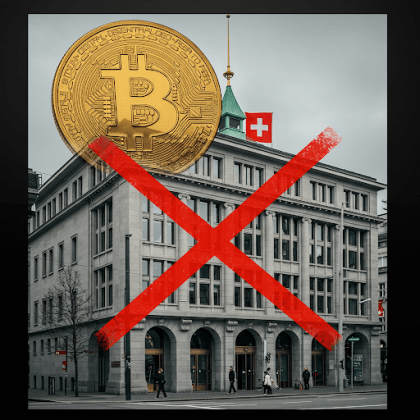The Swiss National Bank (SNB) has firmly rejected adding Bitcoin to its reserves. The bank’s president, Martin Schlegel, explained why.
Too Risky, Too Volatile
Schlegel’s main concern? Bitcoin’s wild price swings. He says Bitcoin doesn’t meet the SNB’s need for stable, reliable assets for managing the country’s money. The possibility of sudden, massive crashes makes it unsuitable as a national reserve. While some see these price jumps as opportunities, central banks generally avoid such unpredictable investments.
Security Concerns
Security is another major issue. Bitcoin’s software-based nature makes it vulnerable to hacking and other security flaws. For a central bank, prioritizing safety in its holdings is paramount, and Bitcoin fails to meet this standard. The numerous high-profile hacks and scams in the crypto world only reinforce these concerns – like the recent Bybit hack that lost $1.5 billion.
A Push for Change
Despite the SNB’s rejection, a Swiss non-profit group, 2B4CH, is pushing for a constitutional amendment to force the SNB to hold Bitcoin alongside gold and other assets. They need 100,000 signatures by June 30, 2026, to get the proposal on a public referendum. If successful, Swiss citizens will get to vote on whether to include Bitcoin in the nation’s reserves.
Global Perspective
Switzerland isn’t alone in this debate. El Salvador has been buying Bitcoin for its reserves since 2021. Other countries like the Czech Republic and Hong Kong have also considered it, while Poland has explicitly ruled it out, citing stability concerns. For now, the SNB remains unconvinced.
The Bottom Line
While Bitcoin supporters remain enthusiastic, the SNB is sticking with traditional assets. Although the debate continues, Bitcoin’s inclusion in Swiss reserves isn’t happening anytime soon.





